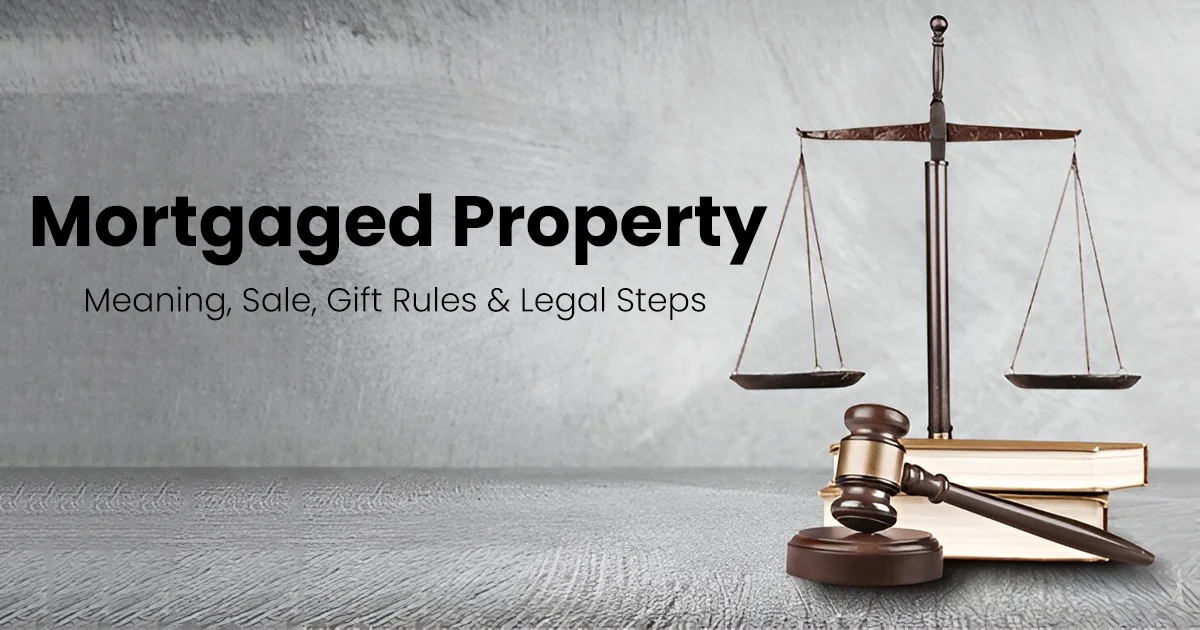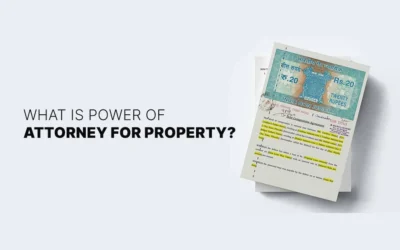By the very nature of their core design, each mortgage clearly states that nothing in finances is ever perfectly yours until every obligation has been fulfilled. The mortgaged property meaning becomes evident here—Property might seem to be the most ideal representation of ownership, but having collateral makes it a somewhat different sort of representation.
Property is not just mortgaged to make a complex financial decision; rather, it serves as a serious philosophical decision option to use the certainty of ownership against the liquidity access. It is the money-for-control trade: balancing today’s needs with tomorrow’s control, security, and freedom.
Every time an individual mortgages some property, it is an explicit transaction for that person-mortgaging for the sake of flexibility, it shall be, yet constrained. With that come legal constructs which, by themselves, spell not just the fate of the property, but the financial road map of its owner as well.
This blog gives a more meaningful reflection on the meaning of a “mortgaged property”, which would not be limited to the idea of a loan contract. It is a tool by which we manage the risk, ownership, and value in this new economy and then unpack its legal, financial, and transactional consequences within the real estate ecosystem of India.
What is the Meaning of Mortgaged Property?
Essentially, the meaning of mortgaged property refers to an asset, which is mostly an estate, that is offered to the lender in return for a loan. It means that the borrower has to pledge their real estate as collateral to the lender until he or she repays the total amount of the loan with the interest.
On the contrary, during the time the property is mortgaged the borrower is the legal owner of property. In such a case, the lender may take legal steps against the borrower to recover the loan amount, including selling that property.
Main Characteristics of a Mortgaged Property:
- Acts as collateral for a secured loan.
- Possession with the borrower; however, legal rights are retained by the lender.
- Once it is repaid, the mortgage gets discharged, and the borrower gets full ownership back again.
Types of Mortgage Arrangements in India
Understanding the different classifications of mortgages existing in India is important when it comes to mortgaged property.
Simple Mortgage
In this case, the borrower gives an undertaking to pay the loan. Upon the default the lender is entitled to sell the mortgaged property in the presence of the court to mobilize the amount due.
English Mortgage
The property is transferred to the lender by the borrower, who, however, promises to repay by a given date. Upon repayment, the lender re-transfers the property to the borrower.
Usufructuary Mortgage
Under this type of mortgage, the lender takes possession of the property and gets rental income or profit out of it until the repayment of the loan.
Equitable Mortgage (Title Deed Deposit)
This system is common in India, whereby a borrower deposits the title deeds of property with the lender without going for a formal deed of mortgage. It is mostly used in the case of housing loans and commercial property loans.
What is a Loan Against Mortgaged Property?
A loan against mortgaged property permits property owners to leverage the worth of the property for an array of purposes, ranging from business expansion, education, or emergencies.
Key Features of Mortgage Loans
- The interest rates on such loans are more competitive as compared to unsecured loans.
- Longer repayment periods from five years to 20 years.
- The borrower remains in physical possession of the property during the loan period.
- The amount of loan disbursed depends on property valuation and the financial credentials of the borrower.
Common Uses of Mortgage Loans
- Business investment.
- Consolidation of debts.
- Treatment of medical ailments.
- Financing higher education.
Eligibility Criteria
- Income and capacity to repay.
- Credit score and credit history.
- Type, location, and market value of the property.
Benefits of Using Property as Collateral
- Loans of huge amounts.
- Lower EMIs due to longer tenure.
- Retaining ownership of the property while availing funds.
Can a Mortgaged Property Be Sold in India?
An ever-present query is: Can a mortgaged property be sold?
“Yes, a mortgaged property can be sold, but there are legal and financial processes involved.”
Conditions Required for Sale
- Clear Loan: The borrower must pay the loan amount before or during the sale transaction.
- Lender’s consent: In certain cases where the loan is not cleared upfront, it would be necessary to get the lender’s consent to proceed with the sale.
- Direct Settlement by Buyer: In some cases, the buyer agrees to pay off the mortgage directly to the lender, deducting the same from the agreed purchase price.
Legal Process to Sell Mortgaged Property
- Obtain from the lender the loan outstanding certificate.
- Disclose the mortgage to the potential buyer.
- Clear the dues through self-funds or via the buyer’s payment.
- Obtain a No Objection Certificate (NOC) and a release deed from the lender.
- Register the sale deed legally and transfer the title to the buyer.
How to Sell Mortgaged Property in India: Step-by-Step Process

Selling a mortgaged property in India requires careful documentation and adherence to all legal requirements to avoid future disputes.
Here are the steps:
Obtain Outstanding Loan Statement
Request an official statement from the lender reflecting the pending loan amount, including principal, interest, and foreclosure charges.
Talk to the Buyer
Negotiate with the buyer, and honesty about the mortgage status of the property is important for trust-building and legal hazard avoidance.
Decide on Loan Repayment Mode
Choose between pre-closing the loan before initiating the sale or having it settled simultaneously with the property transaction.
Settle Mortgage Dues
Personal funds or the buyer’s advance payment will clear the mortgage dues.
Obtain NOC and Release Letter
Once the loan is cleared, the lender will furnish the required NOC, and further, will quash the legal title over the property.
Register the Sale Deed
Execute and register the sale deed to officially transfer ownership to the buyer.
Can a Mortgaged Property Be Gifted in India?
Another frequently asked question is whether a loaned property can be transferred by gift.
Legal Views on Gifting Under Mortgage
In prompt Indian laws, giving off mortgaged property without clearing debts under it or obtaining the lender’s consent is illegal. Since the show over the property is held by the lender, prior approval is a must. Most lenders will not allow gifts unless the loan has been fully paid.
Gifting After Mortgage Repayment
After loan repayments are done fully and the charge is released, the owner can then decide to gift the property via a registered gift deed.
Risks of Mortgaging Property You Must Know
The following are some significant risks associated with mortgaging a property:
Major Risks:
- Loss of Property: When the mortgagee defaults on the loan, it may result in auctioning the property to recover the money.
- Legal Complications: Wrongful sale/transfer of a mortgaged property liable of due process may entail being charged in a court of law.
- Market Fluctuations: The reduced worth of the property leaves the loan amount unprotected.
- Penalties for Foreclosure: There are some lenders who charge exorbitant fees on early repayment/foreclosure.
Key Takeaways on Mortgaged Property Laws in India
| Aspect | Details |
| Mortgaged Property Meaning | Property pledged as security for a loan. |
| Loan Against Mortgaged Property | Enables borrowers to unlock property value for funding needs. |
| Selling Mortgaged Property | Allowed after clearing the mortgage or with the lender’s consent. |
| Gifting Mortgaged Property | Only allowed post-full repayment of the loan and lien removal. |
| Risks Involved | Possibility of foreclosure, legal disputes, and market risks. |
Final Thoughts: Real Estate Caution and Clarity
It is very important to know about the mortgaged property, meaning that one may deal with the transaction or loans. Right from mortgaged property against which a loan is availed or intended for buying or selling, being aware of the legal, financial, and procedural ramifications is crucial.
Yes, a mortgaged property could be sold or gifted, subject to certain preconditions having been satisfied, such as clearing the pending loan amount and obtaining the necessary approvals. Always ensure that everything is clear with the lenders and buyers to avoid any misunderstanding and complications in the future.
Not before having a consultation with legal and financial authorities in order that the property does not contravene any Indian statutes, and because one must also secure one’s own interests before entering any such transaction regarding mortgaged property concerning house mortgage loans.




